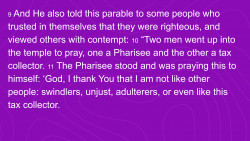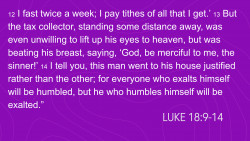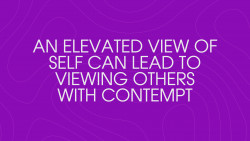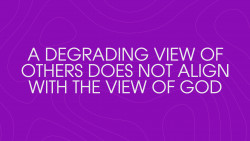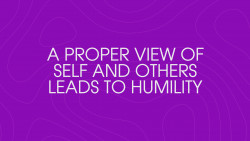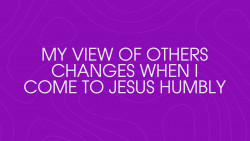The Invitation - Part 1
Sunday message.
Join Pastor Jamie as he delves into the first sermon of a new series, challenging us to shift our perspective and align our hearts with God's vision of humility and compassion. Discover how changing your view can open doors to seeing God's work in your life and the lives of those around you.
MP3 Audio
MP3 Transcript
View an A.I. generated full transcript of the audio.
If you have your Bible with you or you have a device, or you can even look in the back of one of the seats in front of you and find a Bible, I want to invite you to turn to Luke chapter 18. Luke, chapter 18. We're going to start reading in just a few minutes at verse number nine. Can I tell you something? Whether you realize it or not, God is doing something always.
Isaiah wrote of God. He said, behold, I will do something new now. It will spring forth. Will you not be aware of it? He said, I'll even make a roadway in the wilderness and rivers in the desert.
When Isaiah was prophesying to Israel, not only did he prophesy to them, you will go into exile. He then prophesied secondly to say, but I will bring you back even to the point that I can bring forth rivers in the dry desert. The desert always represented the curses that would come upon Israel if they broke the covenant. But God in his goodness, God in his love, God in his mercy, is always working at work to do something marvelous. Do you believe that this morning?
Do you believe that even right now, as you take in the breaths that you take, that God is already preparing something that you cannot imagine? But the problem is we're oftentimes not aware of it. When you and I were in school, I don't know how it was for you, but you know, you'd be getting close to the end of class. And even just talking to some of my kids lately, I know this is still true. You're watching that clock.
You're watching it. Teacher's getting to the end. She's still doing the problem on the board. And you're taking your book and you're closing it up. And it's about 10 seconds before the bell rings.
And she says, now before you leave, I need you to look at page 499 and do problems.
Bell rings. You're like, what she say? You didn't hear? Well, what she said was, do page 499, 10 through 20 even. So you go home and do the odd problems, and you come back the next morning.
Now, kids, I want to bust your bubble. Back in my day, if you showed up the next day to school and you didn't have your homework done, you know what you got? Come on, adults, help me out. Zero. There was none of this formative assessment stuff.
You got a zero. Or it was like. But see, here's the problem was you missed it. You weren't aware of it. Now, I loved elementary school, too, because in elementary school, on our hallway Was this ice cream chest.
Did y'all have an ice cream chest on your hallway? Because back you didn't. Well, you're like 20 years older than me. I'm just kidding. But, you know, back then, you could actually take change to school and buy an ice cream.
It was actually less than a dollar. But what the teacher would do is say, now, kids, don't forget Friday is ice cream day. Now, maybe you're goofing around with your friend and you didn't hear her say, make sure you bring your change and you show up on Friday. But unfortunately, they didn't give out the ice creams back then. You missed it because you weren't paying attention.
Whether it was intentional or unintentional, the fact was that something was given, something was said, and you missed it. You see, God said that something new would happen. He's Isaiah. That not just calamity would come, but blessing and restoration would come. That God was going to do a new thing in our context today of spiritual drought and decay.
I know this for certain. Even in the midst of that, God is still at work. But are we looking for it? Jesus said in Matthew 7, 7, 8, ask and it'll be given to you. Seek and you will find.
Knock and the door will be open to you. For whoever asks, receives. Whoever seeks, finds. And to him who knocks, it will be opened. But are you paying attention?
Do you have the right view? The right perspective? See, because I learned in life, it's not if you look, it's how you look. Yesterday I caught myself kind of. Laura and I were driving somewhere, and where we were, I just kind of really started trying to analyze just little key details.
I've tried to train my eye to be observant. And sometimes you'll see things that normally that you won't. Well, what would keep me from doing that? What would keep you and me from perceiving and seeing what God's doing? Well, number one, we're not walking with Christ.
I can't perceive the things of Christ if I'm not walking with Christ. I mean, if something goes by me and I miss it, it could be because I wasn't walking in a way to see that. Or maybe you're busy. Sometimes you can't help that busyness. But when you can help that busyness, when you stay too busy, you'll miss things.
Maybe you've got a lot of distractions in your life. I lay my phone down there because you wouldn't believe how many people text me in service. It's weird. Like what are you doing? Well, you want me to take a selfie?
Sometimes it's just a lack of discipline. You know, it takes discipline to be observant. It takes discipline to see or sometimes a lack of ability. Or maybe you're here today and the reason you're not seeing what God's doing is because you're indifferent. You're indifferent to the things of God.
What I mean by that, you just don't care. And I know that kind of sounds like, whoa, wait a minute. Well, you just stepped on my toes. Well, I mean to. Because if you're indifferent to the things of God, how can you see what God's doing?
Or maybe you're arrogant or you're full of pride and that lack of concern that you may have leads to a lack of care, that the only thing you care about is me meeting my needs and taking care of me, which is called self centeredness. So I want to argue that if you don't see what God's doing and you're not a part of what God's doing, it might be because you're not looking. You need to change your perspective. You need to change your view. Top of your bulletin, you should have a blank that says, if you want to be a part of what God is doing, change your view.
Now, I've never been a big hunter. I can't grow vegetables. If I intentionally tried to grow mold on bread, I'm pretty sure it wouldn't. So my dad tried to make a hunter out of me and I would go hunting one because I loved Waffle House and he always stopped at Waffle House. But then my dad was a truck driver, so I rarely got to see him during the week.
So I capitalized on those moments to be with my dad. But I'm going to tell you, I didn't know how to hunt. I've learned a few things along the way, but if you enjoy sitting in a tree stand for six hours and freezing, go for it. I got a lot of other things I'd rather enjoy doing than sitting there doing that. But here's what I learned.
I learned that if you don't put yourself in a position to see, you can't hunt. I got a friend of mine who made me really nervous. He would climb trees about as tall as our back wall with his deer stand. And I'm going, dude. And he would say, like, you're not high enough.
I'm like, this is as high as I'm going. In fact, y'all have heard my tree cutting story. I'M gonna write a book about it. Because I tried to cut the top out of one of my trees. And I got up there with my ladder extended as far as it could go.
Listen, I know Tim. I know Tim's shaking his head. Nobody was there to watch me. I ratcheted the ladder to the tree. When I climbed the tree, I went up there.
You'll be thankful. I said, I can't do this. And I came back down. Same thing when I hunted. But here's what I know.
One time my dad took me hunting, and he sat me on a log in the bottom of a holler. And a deer came up behind me about 20 yards. And I never saw it.
And it was a nice deer. And I tried to Davy Crockett it and shot at it. And then I realized there was a guy sitting in a tree above it. Well, he didn't see it either. If you want to see, you've got to change your view.
And if you want to get in line with what God is doing in you, around you and through you, you've got to change your view. You see, we're doing this invite campaign. In fact, you've seen the study notes. The title of this series is called the Invitation. Go figure.
Because what we want to do the next four weeks is talk about the opportunities that God has given us to invite to a variety of things. But listen, if I don't change my view about the way I see people that are around me, inviting them will never be something at work in my life. Because if the only person I'm concerned about is me, if the only thing that church does is exist for me to check off, I gave my check. I did my Bible study. I brought my Bible.
I'm a good Christian. If that's it, if that is what you exist to do, I'm telling you, that's the lowest denominator of spirituality. What we want to do is challenge you to bring that up. So that when you look in our hallway and you hear that we value relationships, that we value helping other people know who God is by sharing our stories, sharing our life, inviting them, then we reveal that we value relationships. That when I think about becoming a disciple and we're all being called to be disciples, gosh, there is no tears of Christianity.
Jesus didn't just ask you to believe. He asked you to follow, to submit, to put your trust in him. So we grow as disciples. We own our faith. But then from that, because we're owning our faith, then we pursue God daily.
We devote our lives to him. We honor him in worship, we honor him in giving, we honor him in prayer. And we do that in this room, Sundays together. But if I'm connecting and then I'm growing and then I'm worshiping, the next step is so logical that we go, that we extend the hope of Christ, that we're committed to going and serving and sharing the Gospel. But if you notice something, what that does is it makes a big loop and comes right back to where you start.
Relationships, discipleship, worship, missions to connect. See how that goes. It's just a big circle. And at each of those points are these opportunities to invite others to come along. Like these connection events, like, come be with me.
Come be with me at date night, Come be with me at Bible school. Or when you think about groups. And I know you wouldn't go up to somebody say, hey, will you come grow with me? That sounds weird. Come on.
I know it sounds weird, but is that not what you're doing? Hey, listen, come. Come and learn with me. Come. Come and be a part of my group.
Or maybe you even start thinking about the idea of worship. I mean, what better thing than to say, come, come celebrate with me. Come celebrate this good God that we have. And then lastly, come serve with me. I mean, you know, Tim, two are better than one.
So, you know, I should have had a partner with me, and I didn't. I paid somebody to do it. Had this nice big truck came out and clipped the top of that tree, and no one got hurt and my house didn't get hurt. Now I got this big pile of stuff.
But serving by yourself is lonely and it's ineffective. What I want you to get out of this lesson as we go through Luke 18 and 19, we're going to look at a parable today and in three different encounters with Jesus that actually paint this picture, this collage of moving people from connecting to growing, to worshiping, to sharing. That's what we want. That's what we want to do. So I want to ask you to go ahead and stand with me because I can sit here, you guys know, I can talk till I'm blue in my face.
I want you to. I want to back up for just a moment because I want you to hear the end of verse 8, because the context of this passage is prayer. You're going to. Wait a minute. Why aren't you preaching on prayer?
Because I want to show you the contrast of attitudes that Jesus is about to talk about. He tells this parable in verse one about a widow woman who Comes to an unjust judge, like he's a jerk, and she comes to him, and she comes to him and she comes to him and the Bible says that because she's annoying him and wearing him out, he does what she asks. But our God is so much greater than an unjust judge. He is righteous and holy and awesome and loving and caring. And so.
So he says, how much more will God not do for his elect, his church? And he says, I tell you that he'll bring about justice for them quickly. However, when the Son of Man comes, will he find faith on earth? He's there. He's Jesus.
So then he tells another parable that begins to unpack this idea of how Jesus would find faith on earth. And he says, and he also told this parable to some who, who trusted in themselves that they were righteous and viewed others with contempt. Two men went up to the temple to pray, one a Pharisee and the other a tax collector. The Pharisee stood and was praying this to himself. I'm not going to make much of that little phrase, but saying to himself is important.
God, I thank you that I'm not like the other people, swindlers and unjust and adulterers or even like this tax collector. I fast twice a week and pay tithes of all that I get.
Bravo. But the tax collector, I love this. This is such a picture of beauty. The picture of beauty, of humility. Standing some distance away because he didn't even feel worthy, wasn't even willing to lift his eyes to heaven, but was beating his breast in mourning over himself.
He says, God, be merciful to me, the sinner. I tell you, this man, the tax collector, went to his house justified rather than the other. Now listen to this. For everyone who exalts himself will be humbled, but he who humbles himself will. Will be exalted.
Father, thank you for your word. Speak to us, God, because we need to see people the way you see them, not the way we see them. And help us that we remove the lens of ourself so that we can see people for who they are and see them with the love of Jesus. We love you. In Jesus name, amen.
So I'm just jumping in feet first into the deep end and taking a swim right here. Point number one. An elevated view of self can lead to viewing others with contempt. An elevated view of self can lead to viewing others with contempt. So I've talked a lot about the movie Cars, the 2006 animated movie the Cars, right?
Lightning McQueen at the very beginning of the movie. If you notice his sponsor is Rust E's bumper Ointment.
If you didn't know that he's sponsored by Rust Eze's bumper ointment. And so they've ran the race, it's a three way tie. They've got to go race, have a race off. And so before he goes, his driver reminds him, hey, you need to go make an appearance in the tent. And he's like, oh, I don't want to go there.
And he says, I hate rusty cars. They mess up my image.
Guys, I think the problem that we have in our lives at some point, on any point in the day, all of us are guilty at some level of elevating, raising ourself up above the people that, that we deem below us.
One dictionary defines contempt, which is this action, as the feeling that a person or a thing is beneath consideration, worthless or deserves scorn. Merriam Webster says it's the act of despising. The state of mind of one who despises has disdain or a lack of respect. The Greek word means to utterly despise. When we hold an elevated view of ourselves, a better than other view of ourselves, a view of looking down upon others, we are in a comparison trap.
I'm good as long as I'm just a little bit better than somebody else. Well, how many of you, Maybe you were the star athlete in your high school and then you went on to college and realized you were a little fish in a big pond. Or maybe you were the top of your class and you got accepted to a college and you went and you realized you weren't the smartest person in the room anymore and you got knocked down a few levels. That's called being humbled. But see, in this case, I want you to listen to it again.
He said, and he told the parable to some people who trusted in themselves that they were righteous. Where did these people put their faith? They put their faith in themselves, in their actions, in their, their identity, or maybe their titles or their money. In fact, if you back up to Luke 16:15, Jesus calls out the Pharisees, especially those who were lovers of money, prestige and position. And he said to them, you are those who justify yourself in the sight of men, but God knows your heart, for that which is highly esteemed among men is detestable in the sight of God.
And what is that telling us? That means that when I take a view of myself, that I'm better than other people and I elevate myself that way as I'm Detesting the detestable God is detesting me. Did you follow that idea when I at any point as a follower of Jesus, look at other people with science, scorn and contempt? That attitude, because God knows my heart is what the Lord is looking at on my heart and he despises it differently than the way I'm despising someone else. God despises that attitude because it's not a reflection of his heart.
If you look at James 2, 1, 4, James is writing and talking about this idea of personal favoritism which is the same idea that, okay, wait a minute, here I am and this person walks in that's well dressed and rich and there's this poor person over here. So I go and show courtesy to the rich man and I despise the poor man. Listen to what he says in verse four. He said, you stand there and you judge. Have you not made distinction among yourself and become judges with evil motives?
You and I, when we elevate ourselves above others and we view others with contempt, we oftentimes miss opportunity of ministry, of compassion, of mercy. All because I think I'm better than somebody else. Now listen, in this room today, I think we have a spectrum. There may be some of you who think you are better than other people and I'm going to call you to repent of that. That does not do God's work any justice.
If you are going to try to connect with people, to be a people of hope and to create this to be a place of hope where the broken can find Christ. We can't do that. If we're up here and we see everybody else down here, we need to flip flop. And so let me ask you this, maybe you don't do that. Maybe there's just certain days you think you're better than other people.
Wherever it is, this answer is the same thing. It's repentance. Turn away from that kind of thinking because it didn't do this guy any good. It didn't do this Pharisee any good. Because here's what happened to him.
Because he had this elevated view of himself. He also had an inflated view of himself. Point number two, an inflated view of self leads to false assurance.
How many of you like cotton candy? You like cotton candy? Now you go to cotton candy machine, you get a big old wad of cotton candy. Maybe about this big, right? Well, do you know that the ingredients that made that cotton candy probably could fit down in a teaspoon?
You know why? Because it's inflated. You're Eating air.
Popcorn. See, I love popcorn, man. It makes me bloated when I eat it. You know why? Because it's full of air.
You take a hot air balloon and when it's deflated, it's just laying there and it's just a tarp. But then you fill it full of hot air. But without that air, it's nothing. See, I can elevate myself by comparing myself to others, but sometimes I will try to stand on my own credits. And my credits are nothing but hot air.
Are you with me? You see, we want people to recognize how good I am. That's a works based theology. See, everybody in this room, I guarantee you if I had five seconds to talk to you, I'd realize very quick. You really actually think you're a pretty good person.
And it makes no sense that a good person would ever do anything bad, would it? So if a good person does something bad, what happens? Well, in my flesh, then I want to do something good to cover up the bad so I can restore my image. Who's the focus? Me.
I'm trying to make me look good and so I inflate myself. But I'm telling you, in the eyes of God, it gives me false assurance. Listen to what he said in verse 11. The Pharisee stood and was praying this to himself.
I want to argue. Actually he was praying to himself. He says, God, I thank you that I'm not like the other people. And he gives this long laundry list of bad people. One who's a defrauder, or somebody who's lacking justice or goodness, as good as he is, is.
But then the adulterers. Man, he's hitting at the ten Commandments. No one is more righteous than I. I mean, this was Paul's idea. This was Paul's identity as a Pharisee.
He was a Pharisee of the Pharisees. And I'm pretty sure he was an arrogant jerk. How do I know that? Because he was killing people. He thought he was so right, he was killing people.
I mean, he goes on to say, I fast twice a week, which was typically the practices Thursdays and Mondays during the weeks of Passover, Pentecost, feast of tabernacles, dedication. The Pharisees would fast during these seasons. But then they believed there were some Pharisees who did it twice a week every week of the year so that they could be seen as fasting. Jesus taught in Matthew 6, when you fast, go wash your face. Why?
Because here's this guy and he's fasting. You come up and he's like, oh, what's wrong with you Kahabit? Fasting all week, man. What's the reward? The attention that he just got it, that's called an inflated, inflated ego.
But the things that he's standing on, I mean, we know that the Old Testament teaches us that our righteousness is what filthy garments like there's nothing to stand, there's no value in my own righteousness. When I let that become my assurance, when I let my works become my assurance, I've missed the grace and the mercy of God. I'm giving a word for it. I came up with this word. I'm going to contact Merriam Webster and see if I can put it in the dictionary.
Self glotation, it's like self glotation device, but it's self glotation where I grab my own personal ring and try to float in the water based upon my own stuff. Look how good I am. I give money, I'm at church all the time, I read my Bible, I sign up for everything plus us other things. But if I'm doing it for my own glory, then I have built false assurance around myself. Listen, can I talk to you and get eyeball to eyeball with you?
Like Levi Skipper would say, there's a lot of good intentioned people doing the right things that are going to hell because they're basing it on their works.
Jesus In Matthew chapter 7, verse 21:23, he said, in that day there will be those who say to me, but Lord, Lord, we cast out demons in your name and we work these miracles. Wait a minute, wait a minute. He said they call him lord. Didn't Romans 10, 9 say, if we confess with our mouth, Jesus is Lord and believe in our heart God raised from the dead, we'd be saved. But there's something missing here.
Because they cry out and call Jesus Lord, Lord. What's the difference? They lack repentance and humility. Because before that in Matthew he says, a good tree cannot bear bad fruit and a bad tree cannot bear good fruit. You are known by the fruit that you bear, but it comes from the heart.
You remember Jesus said Luke 16, I look at the heart, I know why you're doing these things and you're doing it to build yourself up. It's an inflated ego and there's nothing to stand on. Today in sitting in this room, maybe you are guilty of elevating yourself and thinking yourself better than others. Or maybe you're guilty of trying to stand and take credence upon your good Works rather than the finished work of Jesus. Maybe, like Paul, we need to cry out and say, I know nothing except Christ and him crucified.
Because if that truly is what drives me, then when I look at other people who are around me, I will have pity and I want to extend mercy and grace rather than look at verse number 13.3. A degrading view of others never aligns with the view of God. I love this verse. I mean, this verse is so rich. But the tax collector, see, it's a contrast.
Here's the Pharisee who thinks too much of himself and thinks very little of other people. But the tax collector, standing some distance away, not even wanting to come to the place because he feels like he's not worthy, won't even lift his eyes to heaven. I remember when I was a teacher, there were certain students that when they felt ashamed, they would just drop their head and you'd say, like, look at me in the eyes, and they'd look up. And if they looked you in the eyes, they would start crying because they felt so ashamed. That's him.
And he was beating his breast, which is a sign of mourning. And he said some of the most beautiful words that we could ever utter. If you ever run out of something to pray, here's what you pray. God, be merciful, extend mercy to me, the sinner, this word translates, means to render oneself, to appease, to conciliate, to be propitious. In other words, what he's saying, there is God.
I need you to cover me. In the Old Testament, if you need to think about raiders of the Lost Ark, just go ahead. But inside the Holy of Holies was this box called the Ark of the Covenant, overladen with gold, probably one of the most beautiful things you could ever see. But in this box was a copy of the Ten Commandments. The covenant was inside this box, and on top was this lid with two angels with their wings bending forward.
And I don't know what it would look like. I don't know if it was a glowing orb or what it was. But this is where God's presence would come and he would dwell. But before he would. Before he would do that, the sins of Israel had to be propitiated, covered.
And so here's the presence of God looking down through that box at the covenant that Israel had made with him. And they have broken over and over and over and over this covenant. But the priest would come in with the blood of a perfect lamb. And you know what he would do with that blood? He would cover the mercy seat.
So when the presence of God came, the first thing he saw was the blood of the covering before the covenant. Are you following what that means in your life and mine? God have mercy. I can't take my sin away. I am the sinner in this room.
You are either a sinner who is lost or a sinner that is saved. But either way, we're all sinners. And the only way that we're able to stand before a holy God as he looks at us as a sinner is to see the blood of Jesus applied over us and covering us. And when we step into that place of arrogance, when we elevate ourselves and inflate ourselves, then I become the idol of my life. I become the focus of the works and I begin to celebrate me.
And when I do that, the only result is I have to scorn other people for not being as good as I am. And that's not the view that God wants us to have.
Jonah in chapter four, after he went preached to Nineveh, he wasn't happy. He wanted Nineveh to be destroyed. He represents a type of Israel. That Israel, though supposedly knew God, would not repent and follow and obey God, but then would look at somebody else and say, look at how bad they are. The beginning of chapter four, it says.
But it greatly displeased Jonah. And he became angry because God accepted their repentance. And he prayed to the Lord, said, please, Lord, was it not like this that I would just have stayed home? Therefore, in order to forestall this, I fled to Tarshish. For I knew that you were gracious and compassionate and I wanted you to wipe them out.
You got people in your life. Right now because of your elevated and inflated ego, you're looking at people around you. I was God, you would wipe them out. God is pleading with you to have a change of heart, to see them through grace and mercy. As somebody needing Jesus.
Wouldn't it be much better that your worst enemy would come to know Jesus Christ than to die and go to hell? Does that bother you? Does it bother you? Listen to me. I'm not a hellfire brimstone preacher.
But does it bother you that people are still going to hell? Does it bother you that people are still rejecting Jesus? Does it still bother you that people are living in their sin and won't repent and turn to Jesus Christ? Does it bother you? Because if it doesn't bother you, your wood's wet and it needs to be dried out, because this is what happens.
Point number Four. When you get a proper view of yourself and others, it will always lead you to a place. Humility. Let me read that last verse. I love the way this is worded.
He says, I tell you that this man went to his house justified. You know what that word means? Made righteous. The other man thought he was righteous, but he wasn't. And now the tax collector, because he's pleaded the mercy of God, has been made righteous.
Check this out. For everyone who exalts himself will be humbled. Now, immediately we go like, yeah, that's right. Somebody needs to knock that chip off his shoulder. No, that's a grace in and of itself.
Because I, on any given day, probably do look at people with scorn and contempt and maybe think myself better than. Or think better of myself than I should. And thank God that he would knock me down to a place where I could be humble and see him for who he is and see others for who they are. But then the flip of that says, and he who humbles himself will be exalted.
I think it was Peter who wrote, humble yourself under the mighty hand of God and he will exalt you at proper time. When I begin to see people the way God sees them, I can get in line with where God wants to take them and use them. And I can get into that plan. And rather than like the brother of the prodigal son who refused to go to the party because I failed to understand the heart of God for the lost, I can get in line with that. And when my view.
This is the second to last point on your bulletin. My view of others changes when I come to Jesus humbly. And the invitation. The invitation today, if I really look at other people, I de. Elevate myself and de inflate myself and begin to look at people the way God looks at them, then there should be no reason why I couldn't look at them and say, come be with me.
Come be with me. I know the book of Hebrews says, come boldly to the throne of grace to receive mercy in our time of need. But we do so with humility, with brokenness. See, you're here today because somebody told you that you could have hope in Jesus Christ, right or wrong.
How much more can we be effective for the kingdom of God when that becomes our battle cry? So I'm going to ask you to fold up your stuff and stand with me because I'm going to challenge you. I want you to close your eyes and I just want you to think about the questions that I'm about to ask you. This altar is going to be open. Our pastors are down here.
If you need counsel or prayer, we're always here. I believe we are a people who never leave anyone alone at the altar. So if somebody comes forward and you want to come pray with him, come pray. Because I'm about to give you a variety of things. Every week, I'm challenging you to pray about who you will invite according to which value it is.
This week, I'm challenging you who. Can you take your card, your bridge card? If you haven't picked up a bridge card, they're out here on the table. But you take that bridge card and you go, you know what, Lord, My neighbor has three kids and they just moved here and Bible school's around the corner. I'm going to invite them and you begin to pray that God will give you the favor for that.
You know what? I know date night's coming up and I've been talking to my co worker and their spouse and been wanting to hang out with them. What better time to hang out with them? It's just a hundred dollars. It's just a hundred dollars, but it's more than worth it.
You put that on your card. So my first challenge today is the easy one. Who will you invite to come be with you? But now I want you to close your eyes and I want you to really think about these questions. How many of us in this room really need to confess that we are guilty of constantly holding people in contempt and having a better than attitude?
God wants to kill that in your life, and it starts with us repenting for that. How many of us today just need to ask God? I need you to help change my view. It's kind of like hunting. I need to move to a different position.
I need to learn how to look. But if I change my view, I can get in aligned with what he's asking me to do. Maybe today you need to approach somebody that you've hurt because you thought more of yourself than you should. God may put somebody on your heart to say, you know what? I need you to go to them and you tell them you are being an arrogant jerk and ask them to forgive you.
Let this humility change the way that we approach God. Approach God with his humility and come boldly to that throne of grace. Don't hold back, but go and do so humbly. So as we sing, I want to ask you to think about, who am I inviting? Am I guilty?
And what's my next step? Father, speak to us now. Have your way as we get ready to leave. In Jesus name.
Weekly Bulletin


